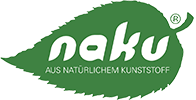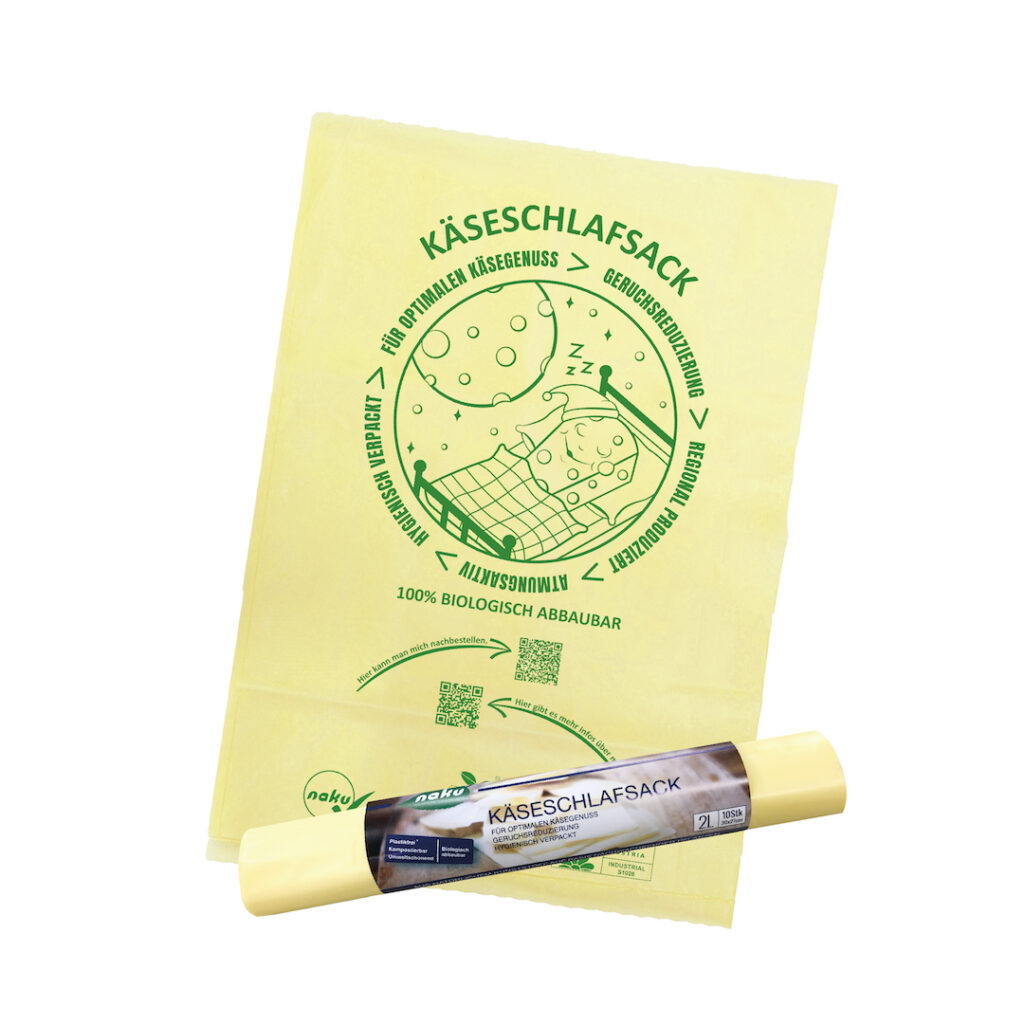
NaKu cheese sleeping bag made of bioplastics – the cheese bag for optimal cheese enjoyment
The plastic-free* alternative.
Compostable & recyclable.
The NaKu cheese sleeping bag ensures optimal cheese enjoyment and a long cheese experience. This breathable and water-resistant corn-based cheese bag from NaKu is plastic-free*, making it the perfect container for hygienically storing cheese in your plastic-free kitchen!
Keeps cheese optimally fresh. Store your cheese in an odor-reducing way without any plastic*.
Rots within a few weeks in the compost according to DIN EN 13432.
A natural and environmentally friendly product made from natural plastic/bioplastic based on renewable raw materials (plant-based). A valuable contribution to reducing CO2emissions, climate-friendly, no formation of microplastics.
*free from conventional plastic
► Preserves the freshness of cheese
► Preserves the cheese aroma – optimal cheese enjoyment
► Store plastic-free*
► Compostable – 100% biodegradable
► Environmentally friendly
► Can be written on over the entire surface
Dimensions:
30 cm x 21 cm
Capacity: 2 Liter
Item No.: R-KS006
The NaKu cheese sleeping bag made from corn starch is ideal for your plastic-free household
With the NaKu cheese sleeping bag – an organic bag especially for cheese made from corn starch – you can store your favorite cheese optimally and plastic-free. Stop worrying about the contact between the cheese and the packaging. With our cheese bag made from non-GMO cornstarch, this is no longer an issue! This plastic-free* cheese bag is the green option for those who don’t want to store their cheese in plastic and petroleum.
The NaKu cheese sleeping bag is made from natural, non-GMO and rapidly renewable raw materials (vegetable raw materials) from European agriculture and is the alternative to plastic.
The NaKu cheese sleeping bag is 100% compostable and free of pollutants and heavy metals.
The special NaKu cheese bag is ideal for storing cheese. The cheese bag preserves the quality of the cheese on the one hand and keeps it optimally fresh on the other. The NaKu cheese sleeping bag has a light yellow design and can practically be written on over the entire surface. This bright coloring also makes it easy to see which cheese is packed in the cheese sleeping bag.
The NaKu organic cheese bags made of natural plastic/organic plastic come in practical rolls of 10 and have a capacity of approx. two litres. They are also available in boxes of 20 rolls.
► Store cheese without plastic*
► Optimally preserves the cheese aroma without plastic*
► Odor reducing
► Reusable, multiple uses
► The alternative to plastic and plastic-coated cheese paper
*free from conventional plastic
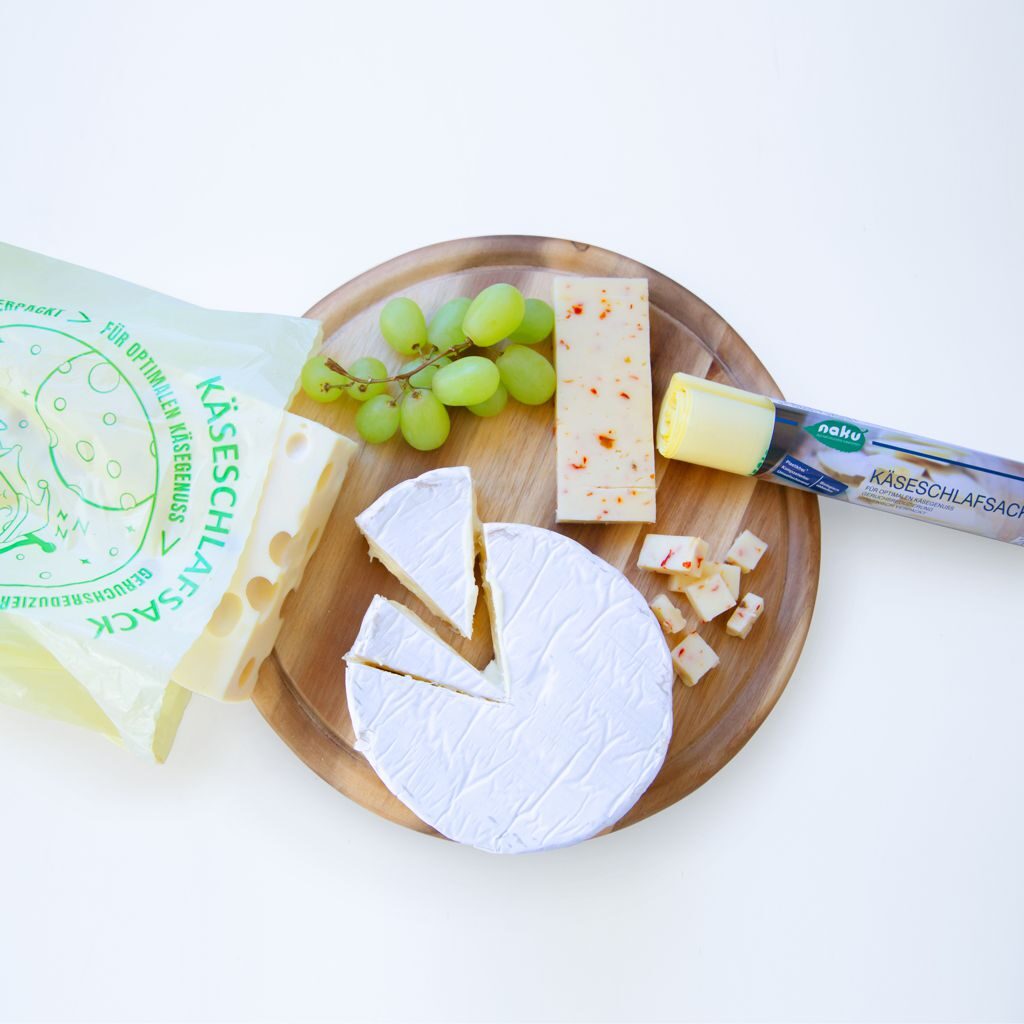

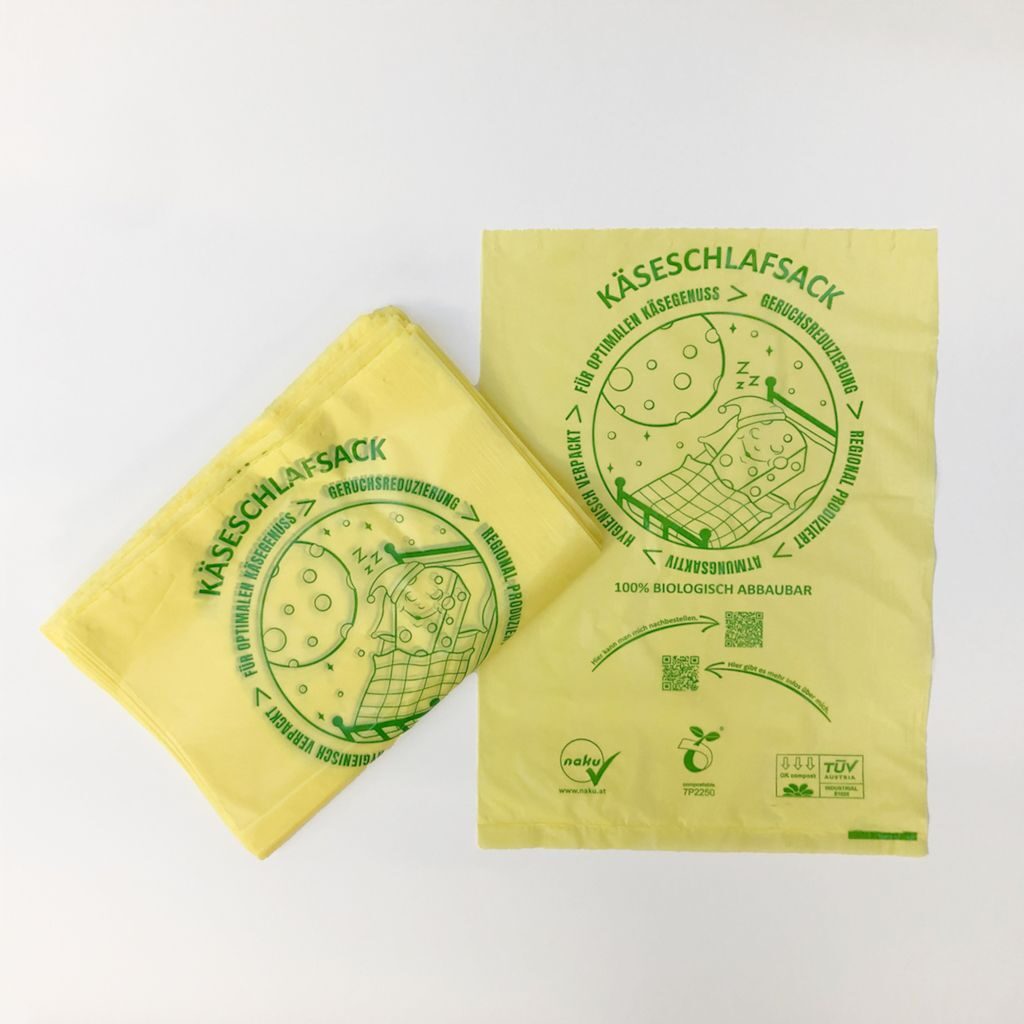
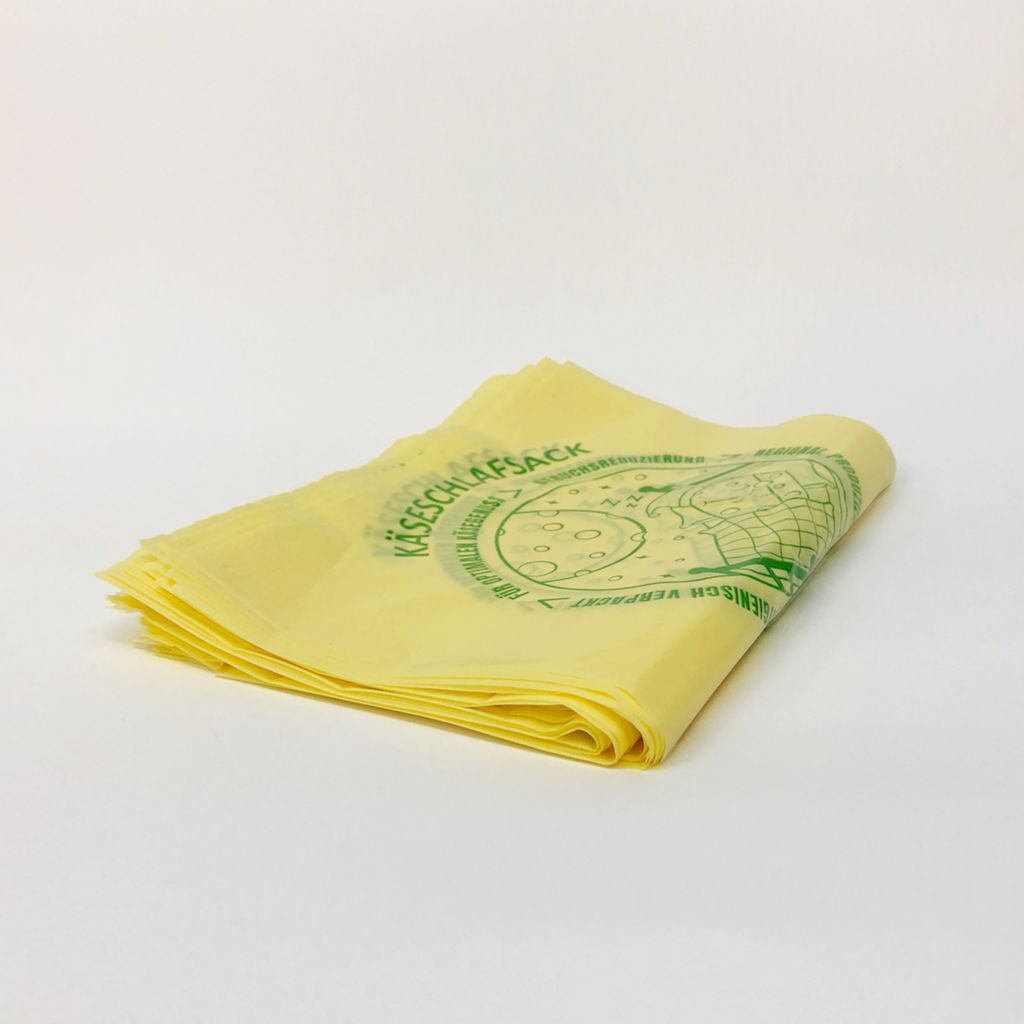
The optimal storage of cheese
Storing cheese is an art that requires a combination of knowing the type of cheese, the right temperature and humidity, and choosing the right container. Here is some information and tips for storing cheese optimally.
The optimum temperature for storing cheese
Most cheeses should be stored at a cool temperature between 4 and 12 degrees Celsius for optimal flavor and texture. Too cold or too warm can affect texture and flavor. As a rule, cheese should be kept on the lowest shelf in the refrigerator to ensure a constant temperature.
The optimal humidity when storing cheese
Humidity is also an important factor in cheese storage. Most cheeses require relative humidity of around 85 to 90 percent. Too little moisture can cause the cheese to dry out and lose flavor and texture. Too much moisture can cause mold to form or the cheese to become slimy. A container with a lid or foil can help regulate moisture.
Optimal air circulation when storing cheese
Cheese should be stored in a room with adequate air circulation. A refrigerator or pantry is often the best place. Cheese left in a plastic wrap or airtight container for too long can lose its aroma and flavor.
The different types of cheese
There are many different types of cheese, and each type of cheese has different storage and preservation requirements. Fresh cheeses like ricotta or cream cheese should be consumed within a few days of purchase. Hard cheeses like cheddar or parmesan can be stored longer if stored properly.
The length of time when storing cheese
Cheese storage times vary depending on the type of cheese and how it is stored. Fresh cheeses should be eaten within a few days. Soft cheeses should be consumed within 1-2 weeks, while hard cheeses can be stored for up to a month or more.
Mold formation when storing cheese
If mold develops on cheese, it doesn’t necessarily have to be thrown away. Hard cheeses can easily be sliced to remove the mold, while soft cheeses may need to be discarded. However, if the mold has spread to the entire cheese or there is an unpleasant odor, the cheese should be discarded.
